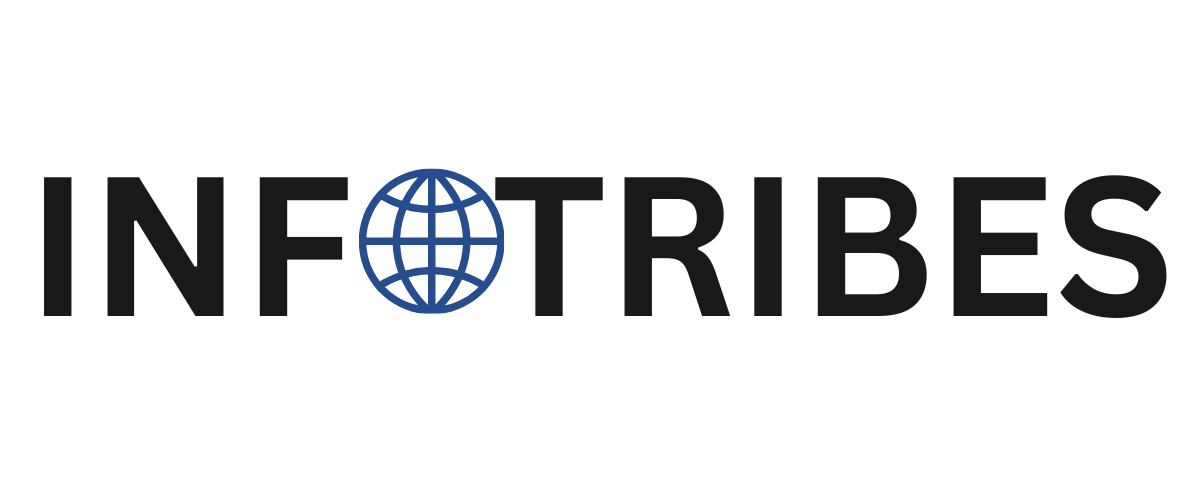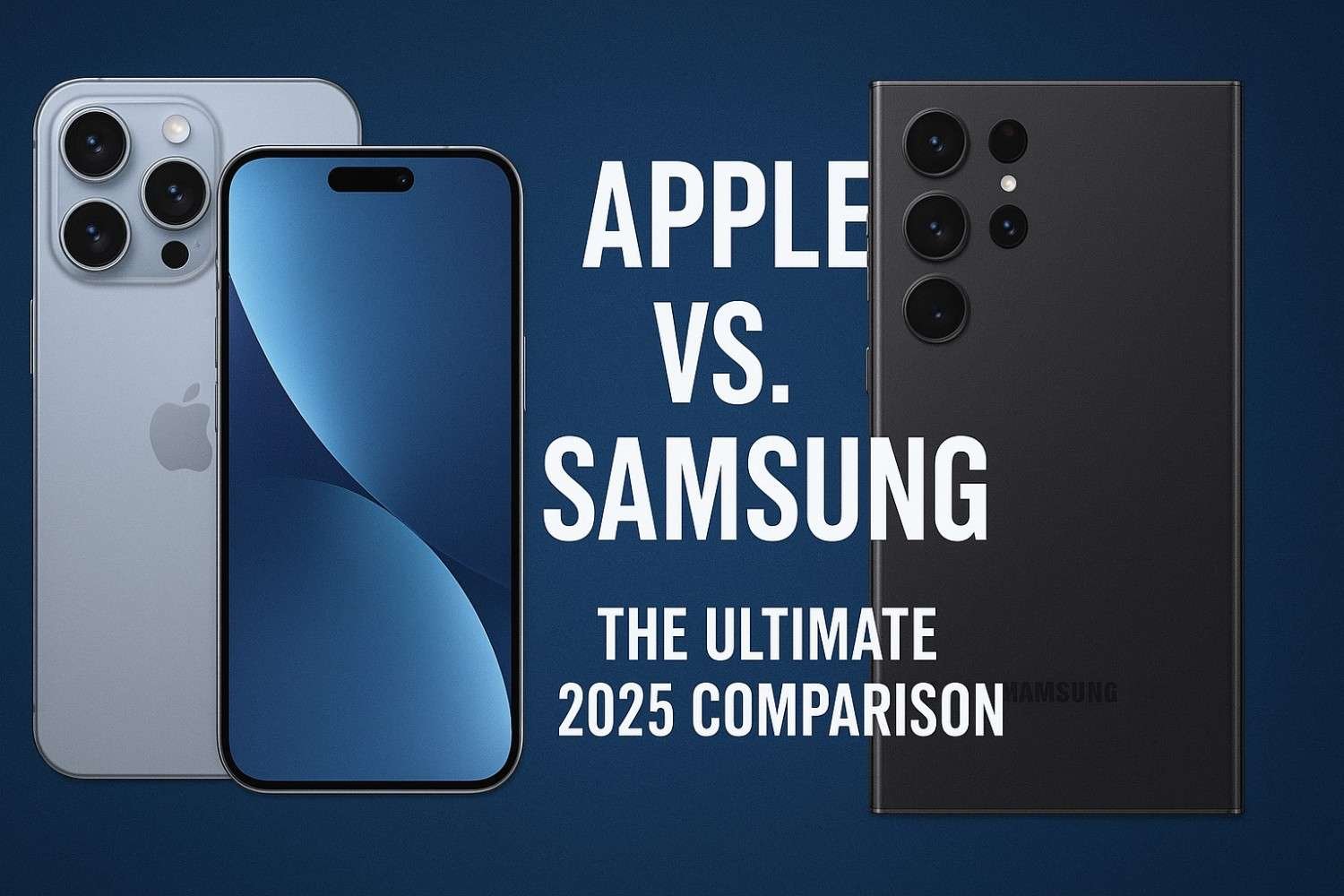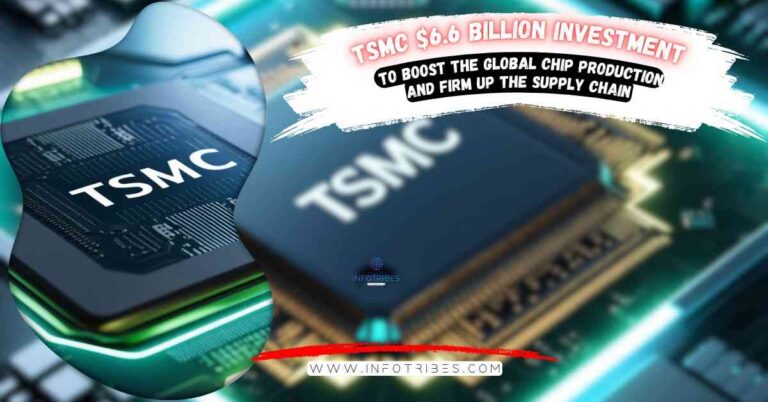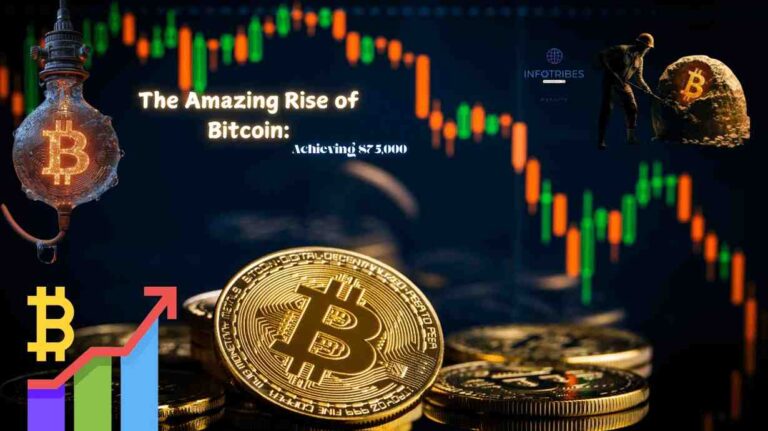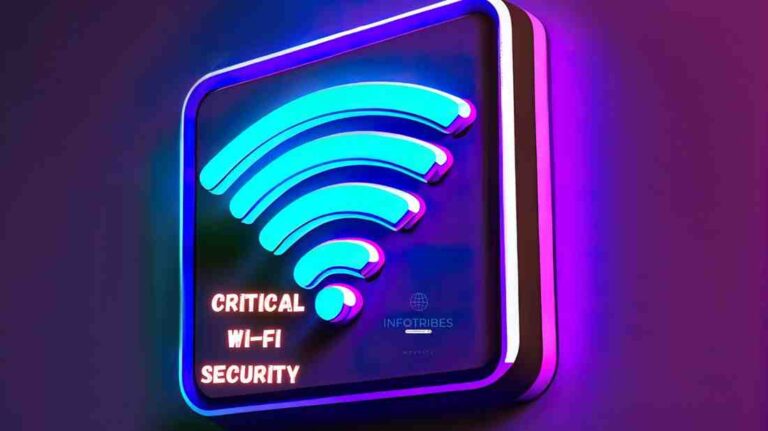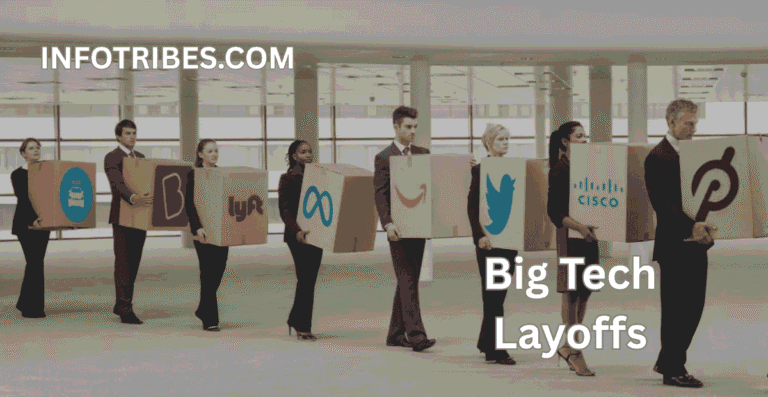Apple vs Samsung: The Ultimate 2025 Showdown
In the world of smartphones, Apple vs Samsung has been the defining rivalry for over a decade. The two tech giants have been pushing boundaries in design, innovation, and ecosystem integration—creating a loyal fan base on both sides. Whether it’s market share battles, camera quality showdowns, or AI-powered features, 2025 has brought fresh dimensions to this rivalry.
This comprehensive guide explores every angle—from market performance and product specs to pricing, sustainability, and future trends—so you can see where each brand stands today.
📊 Market Share & Sales Performance
Global Dominance: Android vs iOS
As of mid-2025, the global smartphone OS market remains tilted in favor of Android (72.5%) over iOS (27.1%). Within the Android ecosystem, Samsung holds the crown with a 19% global shipment share—significantly ahead of other Android manufacturers like Xiaomi and Oppo.
Apple, while commanding a smaller global share, excels in premium market segments and specific regions like the U.S., Japan, and parts of Europe.
Apple vs Samsung Market Share 2025
- Global: Samsung leads with 19.7% (58 million units shipped in Q2 2025), while Apple holds 15.7% (46.4 million units shipped).
- United States: Apple dominates with 57.97% of the market, compared to Samsung/Android’s 41.77%.
- Trend: Samsung thrives in emerging markets and mid-range devices, while Apple relies heavily on flagship iPhone sales.
Best-Selling Phones 2025
In 2024, the iPhone 15 series led global sales, with the iPhone 15 Pro Max becoming the world’s best-selling smartphone. However, Samsung’s Galaxy S24 Ultra managed to secure a spot in the top 10 best-sellers—a notable win in the ultra-premium category.
iPhone vs Galaxy User Loyalty
User retention plays a huge role in market performance:
- Apple: 92% retention rate in the U.S., with 79% of Gen Z preferring iPhones due to iMessage, AirPods integration, and brand status.
- Samsung: Leads Android loyalty, particularly in the Galaxy S and Z series, with innovative hardware like foldables and S Pen support.
⚙️ Product Comparison & Features
iPhone 16 Pro vs Galaxy S25 Ultra Specs
The flagship battle in 2025 boils down to two heavyweights:
| Feature | iPhone 16 Pro | Galaxy S25 Ultra |
| Processor | A18 Pro (3nm) | Snapdragon 8 Elite (4nm) |
| RAM | 8GB | 16GB |
| Camera | Triple-lens (48MP main) | Quad-lens (200MP main) |
| Display | 6.1″ LTPO OLED, 120Hz | 6.8″ AMOLED, 120Hz adaptive |
| Ports | USB-C 2.0 | USB-C 3.2 |
| Price | $999 | $1,299 |
Apple vs Samsung Camera Quality 2025
Photography remains a deciding factor for many buyers:
- iPhone 16 Pro: Excels in video recording, with Dolby Vision 8K HDR support, unmatched color accuracy, and cinematic stabilization.
- Galaxy S25 Ultra: Wins for zoom capability (10x optical zoom), AI-based scene optimization, and a DXOMARK score of 154 vs iPhone’s 152.
Samsung vs Apple Battery Life Test
A real-world PCMag battery test (Aug 2025) shows:
- Galaxy S25+: 28 hours 32 minutes on adaptive refresh.
- iPhone 16: 15 hours average.
Samsung clearly leads in raw battery endurance, although Apple maintains efficiency in standby mode.
iOS 18 vs Android 15 Features
- iOS 18: Focuses on Apple Intelligence—AI-powered summarization, image generation, and context-aware Siri—while maintaining privacy.
- Android 15 (Samsung One UI 7): Offers unmatched customization, real-time translation via Galaxy AI, and per-app theming.
Samsung Foldable vs Apple iPhone
Samsung’s Galaxy Z Fold 7 dominates the foldable market in 2025. Apple is expected to release its first foldable iPhone in 2026, featuring a 7.9-inch clamshell design.
💰 Pricing & Value Analysis
iPhone 16 Price vs S25 Ultra
- iPhone 16 Pro: Starts at $999
- Galaxy S25 Ultra: Starts at $1,299—with extras like a titanium frame, S Pen, and 200MP camera.
Apple vs Samsung Refurbished Deals
The refurbished market is thriving:
- High demand for discounted Galaxy S24 Ultra and iPhone 15 Pro Max models.
- Apple devices tend to hold resale value longer.
Samsung A Series vs iPhone SE
- Galaxy A36 ($399): 120Hz OLED, 5,000mAh battery.
- iPhone 16e / SE ($600): 60Hz LCD, smaller battery but longer software support.
Apple vs Samsung Trade-In Values
- iPhones: Retain 72% value after 1 year.
- Samsung: Retain 58%, with 57% of Android devices replaced within 2 years.
📱 Ecosystem & User Experience
iOS vs Android App Spending
In 2024, App Store revenue reached $124B, more than double Google Play’s $58B—showing Apple’s advantage in monetizing apps.
Apple Ecosystem vs Samsung DeX
- Apple: Seamless Handoff, AirDrop, and integration with Macs, iPads, Apple Watch.
- Samsung: DeX offers a desktop-like experience, especially for productivity and multi-window multitasking.
Want to learn about Gaming
Samsung vs Apple Software Updates
- iOS 18: 88% adoption within a month.
- Android 15 (Samsung): 3.32% adoption—fragmentation remains a challenge.
🔮 Future Trends & Debates
Apple AI Features vs Samsung Galaxy AI
- Apple Intelligence: Deep Siri integration, privacy-first on-device AI.
- Galaxy AI: Real-time translation, advanced photo editing, summarization tools.
Samsung Sustainability vs Apple Eco-Friendly
- Samsung: 28% recycled materials in Galaxy S25.
- Apple: 25% recycled content but leading in carbon neutrality goals.
Will Samsung Beat Apple in 2026?
Factors to watch:
- Samsung’s dominance in foldables.
- Apple’s entry into AR/VR with Vision Pro.
- AI feature expansion.
❓ FAQs: Apple vs Samsung 2025
Which has better battery life: iPhone or Galaxy?
→ Samsung leads: Galaxy S25+ lasts 28h 32m vs iPhone 16’s 15h.
Apple vs Samsung camera quality: Which wins?
→ Tie: iPhone for video, Galaxy for zoom & AI editing.
Are Samsung foldables better than iPhones?
→ Yes—Apple’s first foldable is coming in 2026.
Which holds value longer?
→ iPhones retain 72% value after a year vs Samsung’s 58%.
Conclusion
The Apple vs Samsung rivalry in 2025 is more balanced than ever.
- Samsung leads in global market share, battery life, foldable innovation, and camera versatility.
- Apple dominates the U.S., enjoys unmatched resale value, and offers a tightly integrated ecosystem.
In the end, the “winner” depends on what you value more—customization and innovation (Samsung) or ecosystem and brand prestige (Apple)
Want to learn about Ai Generated influencers
